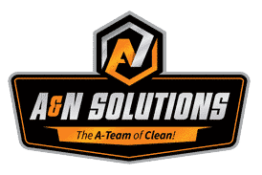Pressure washing businesses in Missouri must navigate a maze of regulations set by the Missouri Department of Natural Resources (DNR). The DNR enforces strict rules on water discharge to protect local water sources from contaminants. This means businesses must carefully manage their wastewater to avoid fines and legal trouble.
Chemical usage is also tightly regulated. The Missouri DNR requires businesses to follow guidelines that limit harmful chemicals in cleaning agents. These rules aim to reduce environmental harm and promote safe practices.
Understanding these regulations is key for any pressure washing business operating in Missouri. Compliance not only protects the environment but also ensures that businesses remain in good standing with the law.
Missouri DNR Water Discharge Regulations
Missouri’s Department of Natural Resources (DNR) sets strict guidelines for water discharge from pressure washing businesses. These include specific permit requirements and detailed wastewater management rules to protect the environment.
Permit Requirements for Pressure Washing
Pressure washing businesses in Missouri need a permit for water discharge. This is to control pollutants entering water bodies. The permit process involves applying through the DNR and meeting state regulations.
Key Steps:
- Submit an application detailing operational practices.
- Pay necessary fees.
- Comply with monitoring and reporting standards.
Responsibility:
The business must ensure no harmful chemicals are discharged. Regular inspections are conducted to check compliance. Violations can lead to fines or enforcement actions.
Wastewater Management Guidelines
Effective wastewater management is essential. The DNR has rules on how wastewater should be collected, treated, and disposed of to prevent contamination.
Collection:
- Capture all runoff from pressure washing.
- Use containment systems to prevent leaks.
Treatment:
- Treat collected water to remove harmful substances.
- Follow approved methods like sedimentation or filtration.
Disposal:
- Dispose of treated water in approved facilities.
- Avoid releasing untreated water into storm drains or natural water bodies.
Proper adherence to these guidelines helps protect Missouri’s natural resources.
Environmental Protection and Chemical Use
Pressure washing businesses in Missouri must adhere to specific regulations to minimize environmental harm. Key areas include handling hazardous chemicals and implementing best practices for safety.
Hazardous Chemicals Handling
Missouri DNR requires careful management of hazardous chemicals. Businesses must store these substances in proper containers with clear labels to prevent leaks and accidental mixing. Employees need training on safe handling procedures, including wearing protective gear like gloves and goggles. Immediate cleanup of spills is essential to avoid soil and water contamination.
Regular inspections ensure compliance with state and federal laws. Violations can lead to fines or shutdowns. Chemicals should also be disposed of following hazardous waste guidelines. Using alternative, less harmful products is recommended whenever possible.
Best Practices for Environmental Safety
To protect the environment, pressure washing businesses should adopt several best practices. They must capture and treat wastewater before discharge, using filtration systems or settling tanks. This prevents contaminants from entering storm drains or natural water sources.
Regular maintenance of equipment helps prevent leaks and spills. Training for employees on eco-friendly procedures ensures they follow guidelines, such as using biodegradable detergents and minimizing water usage. Proper site assessment before starting work can identify sensitive areas that need extra protection, like rivers or wetlands.
